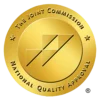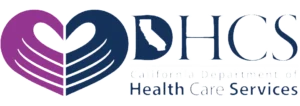Relapse prevention programs are structured addiction treatment approaches that teach people in recovery how to identify triggers, manage cravings, and maintain sobriety through evidence-based techniques and ongoing support. These programs recognize addiction as a chronic condition requiring continuous management, much like diabetes or heart disease.
At Bayview Recovery Center in San Diego, California, we’ve witnessed how personalized relapse prevention programs transform recovery outcomes for men struggling with substance use disorders. This guide explores what relapse prevention planning involves, how it works, and the specific techniques that help maintain long-term sobriety.
 Relapse is the process of returning to substance use after a period of sobriety. It is a common occurrence for individuals recovering from addiction, and it can be triggered by various psychological, emotional, and environmental factors. Understanding the relapse process and recognizing the early warning signs can help prevent setbacks in the recovery journey.
Relapse is the process of returning to substance use after a period of sobriety. It is a common occurrence for individuals recovering from addiction, and it can be triggered by various psychological, emotional, and environmental factors. Understanding the relapse process and recognizing the early warning signs can help prevent setbacks in the recovery journey.
Making a poor decision that triggers a relapse does not happen overnight. It often follows a pattern that includes emotional relapse, mental relapse, and physical relapse. Emotional relapse occurs when an individual begins to feel negative emotions such as stress, anxiety, or depression, but does not healthily address them.
Mental relapse involves internal conflict; part of the person wants to remain sober, while another part considers substance use again. If these signs are not addressed, they may lead to physical relapse, which is the actual act of using drugs or alcohol again. At Bayview Recovery Center, our men’s treatment center has designed a relapse prevention program to help our clients learn how to cope with their triggers to maintain sobriety.
What is a Relapse Prevention Program?
According to the National Institute on Drug Abuse, relapse rates for substance use disorders range from 40-60%, making relapse prevention programs essential for lasting recovery. At Bayview Recovery Center, we’ve seen firsthand how these programs transform lives by giving men the confidence and skills to navigate challenges without returning to substance use.
The core purpose centers on empowerment rather than restriction. Instead of focusing on what you can’t do, these programs, which often include group therapy sessions, teach you what you can do when faced with difficult situations. Participants learn to recognize warning signs early and respond with healthy alternatives before cravings become overwhelming.
Relapse Prevention Definition and Importance
The approach recognizes addiction as a chronic condition requiring ongoing management, similar to diabetes or high blood pressure. You wouldn’t stop taking insulin after feeling better, and addiction recovery works the same way. Continuous attention and care prevent setbacks.
- Proactive approach: Addresses problems before they escalate to relapse rather than reacting to crises
- Skill development: Builds practical skills you can use in real-world situations
- Long-term focus: Emphasizes sustainable change rather than quick fixes
Research from the Substance Abuse and Mental Health Services Administration shows that structured relapse prevention programs significantly improve outcomes compared to standard addiction treatment alone. People who participate report better relationships, improved self-regulation, more stable employment, and greater overall life satisfaction.
Common Relapse Prevention Topics and Techniques
Trigger identification forms the foundation of most programs. Triggers are specific people, places, emotions, or situations that increase your urge to use substances. Everyone has different triggers, which is why personalized planning matters so much.
Cognitive-behavioral therapy techniques help you recognize and change thought patterns that lead to substance use. For example, you might learn to catch yourself thinking “I can’t handle this” and replace it with “This is difficult, but I have tools to manage it.”
| Technique | Primary Focus | How It Helps |
| Cognitive-Behavioral Therapy | Thought patterns and behaviors | Changes automatic responses to stress |
| Mindfulness Training | Present-moment awareness | Reduces emotional reactivity |
| Motivational Enhancement | Personal goals and values | Strengthens commitment to recovery |
Mindfulness-based approaches teach you to observe cravings without immediately acting on them. This skill proves particularly valuable because cravings typically last only 15-30 minutes when you don’t feed them with attention or action.
Steps to Develop a Relapse Prevention Plan
Your triggers are as individual as your fingerprints. What triggers one person’s relapse may not affect another person at all. Common triggers include specific locations where you used substances, certain emotional states like loneliness or anger, and social situations involving peer pressure.
Environmental triggers often catch people off guard. Walking past your old dealer’s neighborhood or smelling alcohol at a restaurant can create unexpected urges. Emotional triggers tend to be more predictable but harder to avoid completely.
The identification process involves honest self-reflection, often with the help of a counselor or therapist. You’ll examine past relapses or close calls to identify patterns and warning signs you might have missed before.
Coping skills serve as your alternatives to substance use when facing difficult situations. The key is developing a diverse range of options because different situations call for different responses.
Physical coping strategies include exercise, deep breathing, progressive muscle relaxation, and taking walks. These approaches help burn off stress hormones and create natural mood improvements. Mental coping strategies involve positive self-talk, problem-solving techniques, and distraction methods like reading or puzzles.
Social coping focuses on reaching out to supportive people when you’re struggling. This might mean calling a sponsor, texting a friend from group therapy, or attending a support group meeting. The important thing is having multiple options ready before you need them.
Recovery thrives in community, and isolation often precedes relapse. Your support network includes professional helpers like therapists and counselors, peers who understand your journey, and family members or friends who support your sobriety.
Professional support provides expert guidance and accountability. Peer support offers understanding from people who’ve faced similar challenges. Personal support from family and friends gives you a connection to life outside of addiction recovery.
At Bayview Recovery Center, we help clients identify and strengthen these connections through group therapy sessions, family education programs, and referrals to ongoing community resources. The goal is to create multiple layers of support so you’re never facing challenges alone.
High-risk situations are circumstances where the temptation to use substances feels particularly strong. Having specific plans for these scenarios significantly reduces your likelihood of relapse because you’re not making decisions in the heat of the moment.
Effective planning involves three steps: identifying the situation, developing your response strategy, and creating backup plans if your first approach doesn’t work. For instance, if you’re invited to a party where people will be drinking, your plan might include bringing a sober friend, having your own transportation, and practicing responses to offers of alcohol.
The planning process also includes identifying your personal warning signs that indicate you’re entering a high-risk state. These might include changes in sleep patterns, increased irritability, or thoughts about “just one drink.”
How Long Does a Relapse Prevention Program Last?
However, prevention isn’t really a time-limited intervention. It’s an ongoing process that continues throughout recovery. Many people find value in periodic refresher relapse prevention sessions or continued participation in support groups that reinforce prevention skills.
- Individual factors: Severity of addiction, previous relapse history, co-occurring mental health conditions
- Program intensity: Frequency and duration of sessions, individual versus group format
- Support availability: Access to ongoing resources and community connections
At Bayview Recovery Center in San Diego, CA, we customize the length of the relapse prevention program based on each client’s unique circumstances and progress, ensuring adequate time to create and practice essential skills before transitioning to less intensive support.
Evidence and Research Behind Relapse Prevention Programs
 The effectiveness of relapse prevention programs is supported by decades of research demonstrating their impact on long-term recovery outcomes. A comprehensive review by the National Institute of Health found that structured prevention interventions reduce relapse rates by 25-40% compared to standard care.
The effectiveness of relapse prevention programs is supported by decades of research demonstrating their impact on long-term recovery outcomes. A comprehensive review by the National Institute of Health found that structured prevention interventions reduce relapse rates by 25-40% compared to standard care.
Recent studies identify specific program elements that contribute most to success. Relapse prevention programs combining cognitive-behavioral techniques with mindfulness training show particularly strong outcomes, with participants maintaining sobriety at higher rates even two years after addiction treatment completion.
Research also highlights the importance of individualized approaches. Programs that tailor interventions to personal risk factors and learning preferences achieve better results than one-size-fits-all approaches. This finding supports the value of comprehensive assessment and personalized treatment planning.
The evidence consistently shows that prevention programs are cost-effective investments. While they require upfront resources, they reduce overall treatment costs by preventing expensive emergency interventions and repeat hospitalizations.
Supporting Mental Health and Dual Diagnosis
Depression affects approximately 40% of people with substance use disorders, while anxiety disorders are present in about 25% of this population. Post-traumatic stress disorder occurs in 15-30% of people in recovery, according to recent research from the National Institute of Mental Health.
- Medication management: Proper treatment of mental health symptoms reduces relapse risk
- Trauma-informed care: Addresses underlying trauma that often contributes to addiction
- Integrated therapy: Combines addiction and mental health treatment for better outcomes
At Bayview Recovery Center, our integrated approach ensures that both addiction and mental health needs receive comprehensive attention, reducing overall relapse risk through coordinated care.
Overcoming Challenges and Preventing Relapse
 Even with a comprehensive relapse prevention plan, people in recovery face ongoing challenges that test their commitment and skills. Understanding common obstacles and having strategies to address them proves crucial for long-term success.
Even with a comprehensive relapse prevention plan, people in recovery face ongoing challenges that test their commitment and skills. Understanding common obstacles and having strategies to address them proves crucial for long-term success.
Managing cravings represents one of the most significant challenges. Cravings can occur unexpectedly, even years into recovery, but they typically last only 15-30 minutes when you don’t act on them. Techniques like “urge surfing” teach you to observe the craving without fighting it until it naturally subsides.
Social pressure creates another major challenge, particularly in environments where substance use is normalized or encouraged. Learning assertiveness skills and practicing responses to social pressure helps you navigate these situations with confidence rather than avoidance.
- Overconfidence: Regular check-ins with a treatment team and honest self-assessment prevent complacency
- Isolation: Active participation in recovery communities and social activities maintains connection
- Stress overload: Stress management techniques and lifestyle adjustments prevent overwhelm
- Relationship conflicts: Communication skills training and therapy help navigate interpersonal challenges
The difference between a temporary slip and a full relapse often depends on how quickly you recognize the problem and engage your support systems and coping strategies.
How Bayview Recovery Center Helps You Prevent Relapse
Our prevention services begin during initial addiction treatment and continue through extensive aftercare programs. We recognize that each person’s recovery path is unique, and our individualized treatment plans reflect this understanding by incorporating personal risk factors, strengths, and goals.
The center’s approach includes cognitive-behavioral therapy to address thought patterns and behaviors, mindfulness training to improve emotional regulation, group therapy to build peer support and accountability, and family involvement to strengthen home-based support systems. Additionally, we provide ongoing alumni programs that maintain connections and support long after formal treatment ends.
Our outcomes reflect our commitment to providing comprehensive, evidence-based care that supports lasting recovery. Clients consistently report improved coping skills, better relationships, and greater confidence in their ability to maintain sobriety.
Relapse Prevention Program FAQs
Yes, relapse prevention plans can be particularly beneficial for people with multiple relapses. Each relapse provides valuable information about triggers, vulnerable situations, and gaps in coping strategies that can be addressed in an updated prevention plan.
Online programs can be effective, especially when they include interactive elements and regular contact with counselors. However, many people benefit from the added accountability and peer support that in-person programs provide.
Absolutely. Prevention techniques are valuable for anyone looking to maintain positive behavioral changes, whether related to substance use, gambling, or other problematic behaviors.
Working with healthcare providers to develop comprehensive pain management strategies is essential. Your relapse prevention plan can include alternative pain management techniques and clear protocols for communicating with medical professionals about your recovery status.

Alyssa Looser-Smith (Medical Reviewer)
Alyssa is a licensed Clinical Social Worker and received her Master’s degree from San Diego State University. She has experience working with individuals in recovery of all ages for over eight years. Alyssa has also worked with at-risk homeless foster youth transitioning into independent living along with the families in the neonatal intensive care unit at UCSD.
Bayview Recovery Center Can Help You Maintain Long-Term Sobriety
If you or a loved one is struggling with relapse or addiction, reach out to Bayview Recovery Center today to learn more about our evidence-based treatment options. Recovery is possible, and we are here to help you achieve lasting sobriety.



